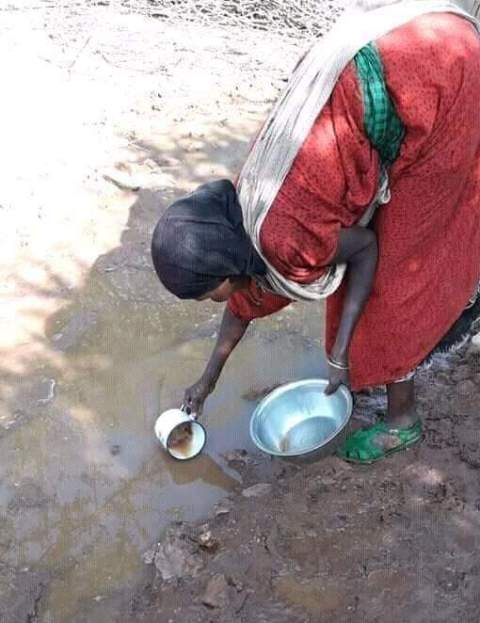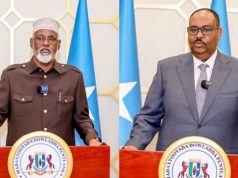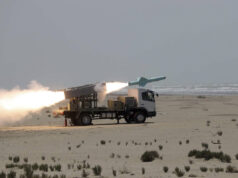
The impact of Somalia’s civil war on its people is apparent to this day. Since 1991, despite significant progress in governance, communities continue to deal with the after-effects of conflict on top of new safety concerns. Saferworld is working in partnership with the Somali Women’s Development Centre (SWDC) and the Somali Women Solidarity Organization (SWSO) to address these insecurities through community action forums that amplify the voice of the people, particularly the marginalised and help build peace from the bottom up. We spoke to six community members who have been impacted by this work:
Salma*, 45, is a mother of nine children and an internally displaced person (IDP) living in Kismayo, Somalia. She sells homemade sweets to earn a small income and she has joined a community action forum to address problems faced by her community. “Initially during the civil war, we moved from one region to another in Somalia. Then we fled to Kenya and settled in Utange refugee camp located between Malindi and Mombasa. I’ll never forget our experience at the border when we met those who we were fleeing from. With us were injured people, women, children, even leaders. We were attacked from all sides.
All injured people and men were killed; only women and the elderly were spared. In Kenya, one night the camp was burnt to the ground. We ran outside in our night dresses; all our belongings got burnt. The camp was burnt again for a second and third time. In 1995, we returned to Somalia and settled in Kismayo because there was relative calm. When we came back, we couldn’t afford to rent a house, so we were forced to build temporary home, made of plastic canvas.
In Kenya, our basic needs were taken care of by humanitarian organisations. In Somalia, though our security here is good, we are not given much attention. Before 2017, life was risky because of fighting between different militias, but now our conditions have really improved. Still, there is robbery during the night when we are sleeping; thieves steal whatever they can lay their hands on including clothes and food. Some thieves will even rape women and girls at knifepoint. The houses we live in are not secure.
When I first heard about the action forum, I thought it was a joke or just a rumour. I told them that not even the police force could guarantee our safety. We didn’t have a government for 27 years, so we are used to resolving issues by ourselves. “We didn’t have a government for 27 years, so we are used to resolving issues by ourselves.”
I’ve learned that the forum is a good community policing association. They carry out awareness-raising [on what issues are causing conflict and how to resolve it peacefully] in the refugee camp and people are now well informed on violations including rape, physical assault, and denying access to children. The forum carries out seminars in different camps and for different groups, such as women, elders and youth. Women are naturally shy and will only share crucial information about a crime to other women – so the action forum has also successfully advocated for the inclusion of women in the police service, and even in the courts to handle women’s cases. As a member of the forum now, I am the one who usually organises people to attend the seminars in my camp. Those who attend disseminate the information to others. Women now understand that they need to be involved in politics.”







